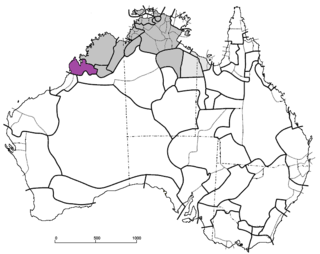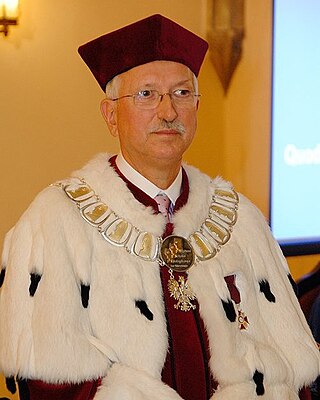The following outline is provided as an overview and topical guide to linguistics:

Michael Alexander Kirkwood Halliday was a British linguist who developed the internationally influential systemic functional linguistics (SFL) model of language. His grammatical descriptions go by the name of systemic functional grammar. Halliday described language as a semiotic system, "not in the sense of a system of signs, but a systemic resource for meaning". For Halliday, language was a "meaning potential"; by extension, he defined linguistics as the study of "how people exchange meanings by 'languaging'". Halliday described himself as a generalist, meaning that he tried "to look at language from every possible vantage point", and has described his work as "wander[ing] the highways and byways of language". But he said that "to the extent that I favoured any one angle, it was the social: language as the creature and creator of human society".
Linguistics is the scientific study of language, involving analysis of language form, language meaning, and language in context.
Louis Trolle Hjelmslev was a Danish linguist whose ideas formed the basis of the Copenhagen School of linguistics. Born into an academic family, Hjelmslev studied comparative linguistics in Copenhagen, Prague and Paris. In 1931, he founded the Cercle Linguistique de Copenhague. Together with Hans Jørgen Uldall he developed a structuralist theory of language which he called glossematics, which further developed the semiotic theory of Ferdinand de Saussure. Glossematics as a theory of language is characterized by a high degree of formalism. It is interested in describing the formal and semantic characteristics of language in separation from sociology, psychology or neurobiology, and has a high degree of logical rigour. Hjelmslev regarded linguistics – or glossematics – as a formal science. He was the inventor of formal linguistics. Hjelmslev's theory became widely influential in structural and functional grammar, and in semiotics.
Bernard Sterling Comrie, is a British-born linguist. Comrie is a specialist in linguistic typology, linguistic universals and on Caucasian languages.

The Nyulnyulan languages are a small family of closely related Australian Aboriginal languages spoken in northern Western Australia. Most languages in this family are extinct, with only three extant languages, all of which are almost extinct.
Mary Carmel Charles was an author and the last fluent speaker of the Nyulnyul language of Western Australia. She was born to the Nyulnyul tribe in the Kimberley region of Western Australia at the Beagle Bay Mission. She played an important part in the documentation of the language and the writing of a Nyulnyul grammar, despite the fact that she was deaf.
Nyulnyul is an dormant Australian Aboriginal language, formerly spoken by the Nyulnyul people of Western Australia.
Joan Wanda Bresnan FBA is Sadie Dernham Patek Professor in Humanities Emerita at Stanford University. She is best known as one of the architects of the theoretical framework of lexical functional grammar.
Gooniyandi is an Australian Aboriginal language now spoken by about 100 people, most of whom live in or near Fitzroy Crossing in Western Australia. Gooniyandi is an endangered language as it is not being passed on to children, who instead grow up speaking Kriol.
Randy John LaPolla is a professor and former Head of Division at the Division of Linguistics and Multilingual Studies in Nanyang Technological University. He is also a Fellow of the Australian Academy of the Humanities, elected 2008. He is currently Professor of Linguistics at the Center for Language Sciences at Beijing Normal University's Zhuhai campus, and Associate Fellow of CLASS, Nanyang Technological University.
The Jabirr Jabirr language, also known as Djabirr-Djabirr, is a Western Nyulnyulan language formerly spoken by the Jabirr Jabirr people on the coast south of Beagle Bay in Western Australia. Earlier sources spelled the name DjaberrDjaberr or Dyaberdyaber; the contemporary accepted spelling is Jabirr-Jabirr, which reflects the spelling conventions of languages of the Kimberley region. It is also sometimes spelt Jabba Jabba.

Zdzisław Wąsik is a Polish linguist and semiotician, Rector Senior and Professor Ordinarius at the Philological School of Higher Education in Wrocław and Professor Senior at Adam Mickiewicz University in Poznań.
Jane Simpson is an Australian linguist and professor emerita at Australian National University.
Barry Blake, born 1937, is an Australian linguist, specializing in the description of Australian Aboriginal languages. He is a professor emeritus at La Trobe University Melbourne.
The Gooniyandi, also known as the Konejandi, are an indigenous Australian people in the Kimberley region of Western Australia.
Michele Zappavigna is an Australian linguist. She is an associate professor at the University of New South Wales, Sydney. Her major contributions are based on the discourse of social media and ambient affiliation. Her work is interdisciplinary and covers studies in systemic functional linguistics (SFL), corpus linguistics, multimodality, social media, online discourse and social semiotics. Zappavigna is the author of six books and numerous journal articles covering these disciplines.
Angus Mcintosh, was a British linguist and academic, specialising in historical linguistics.

Ingrid Piller is an Australian linguist, who specializes in intercultural communication, language learning, multilingualism, and bilingual education. Piller is Distinguished Professor at Macquarie University and an elected fellow of the Australian Academy of the Humanities. Piller serves as Editor-in-Chief of the academic journal Multilingua and as founding editor of the research dissemination site Language on the Move. She is a member of the Australian Research Council (ARC) College of Experts.
Elisabeth Engberg-Pedersen is a Danish linguist and professor of applied linguistics at the University of Copenhagen. She has contributed significantly to the description of Danish Sign Language and was the only sign language linguist in Denmark from 1978 to 2004. She is considered an important figure in the development of Danish functional linguistics, and has also studied autism and the relation between language and cognition from a cognitive-functional perspective with focus on semantics and pragmatics. She is the sister of Troels Engberg-Pedersen.



